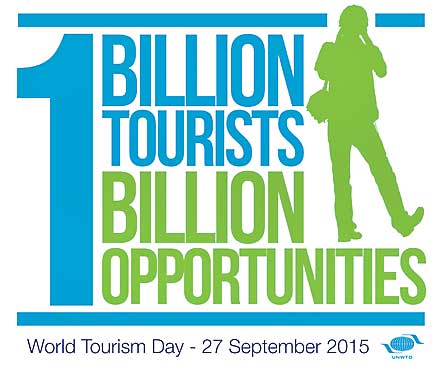Sunday Feb 22, 2026
Sunday Feb 22, 2026
Friday, 25 September 2015 01:28 - - {{hitsCtrl.values.hits}}
The Sri Lanka Tourism Promotion Bureau, in a landmark development to celebrate World Tourism Day- 2015, will be inking an MoU under the leadership of new Tourism and Christian Affairs Minister John Amaratunga, which will take the industry to new heights, the organisation noted in a communiqué.
The MoU will link the industry with the country’s academia, namely the University of Colombo’s Tourism Master’s and Postgraduate Diploma program where industry issues will be researched by the best brains in the country so that Sri Lanka Tourism will become the forerunner of the country’s economy, said Sri Lankan Tourism Promotions Bureau Chairman Dr. Rohantha Athukorala.
“Universities are organisations that perform a key role within contemporary societies by educating large proportions of the population and generating knowledge but many universities have taken action to develop a third mission by fostering links with knowledge users and facilitating technology transfer. The latter is what we are interested in and the private sector tourism chambers - SLITO, THASL and ASMET - will be the key stakeholders in the MoU,” he said.
To launch the project, 80 key issues of the industry were identified and handed over to the Dean of the Tourism and Economic Affairs Department of the University of Colombo by the private sector in the presence of the Minister of Tourism. These will become the dissertation topics for the students. The findings will then be presented back to the Sri Lanka Tourism Promotion Bureau where it will be accessible to the industry at the Sri Lanka Tourism library.
“We are working out an honorarium for the research students and once we receive the necessary approval there will be a joint announcement on same,” said Dr. Athukorala.
Whilst commercialisation clearly represents an important way for academic research to contribute to the economy and society, there are multiple other ways in which university research is transferred. These interactions include formal activities such as collaborative research, contract research and consulting as well as informal activities like providing ad hoc advice and networking with practitioners. Academic engagement is also sometimes referred to as informal technology transfer.